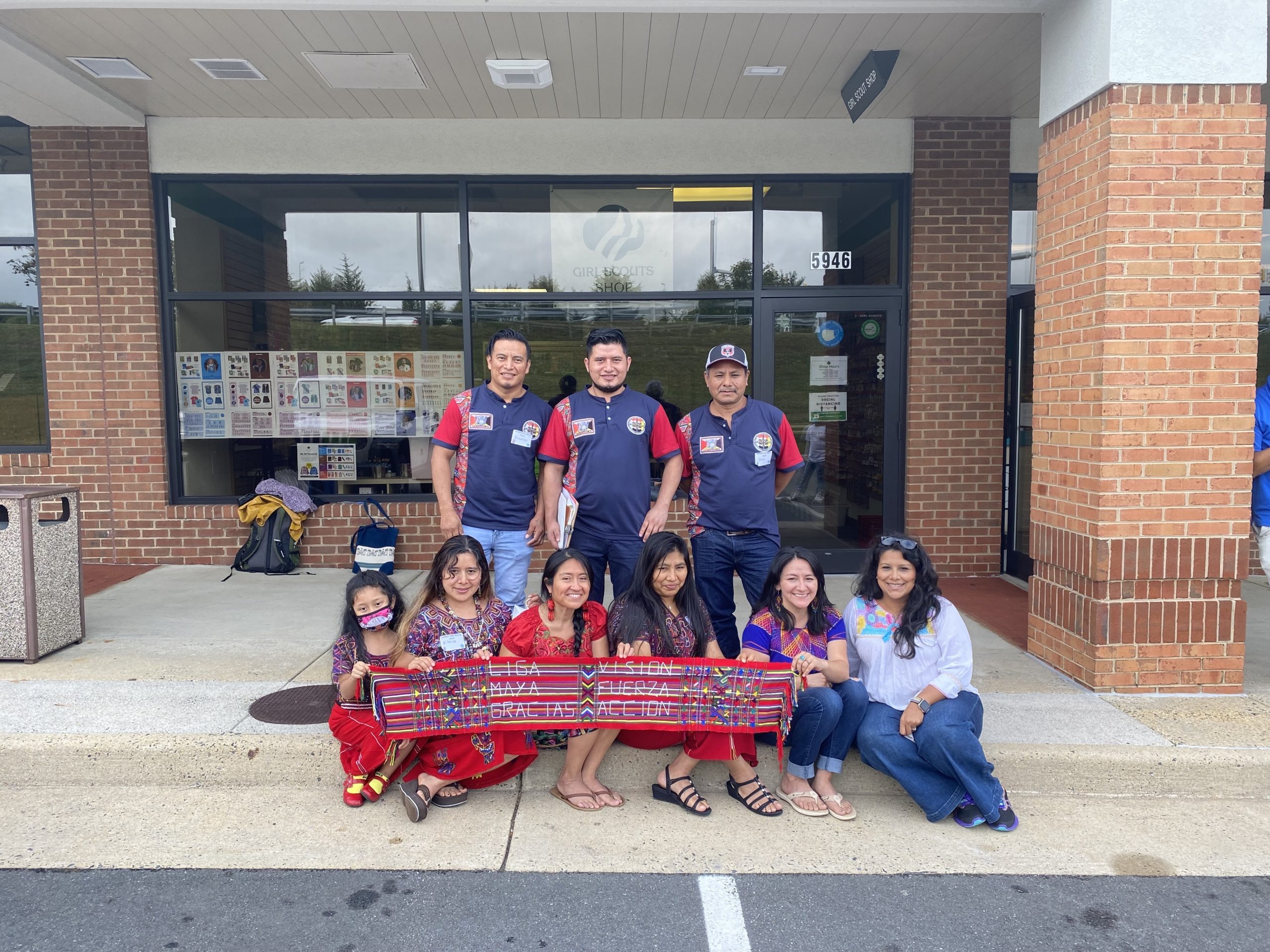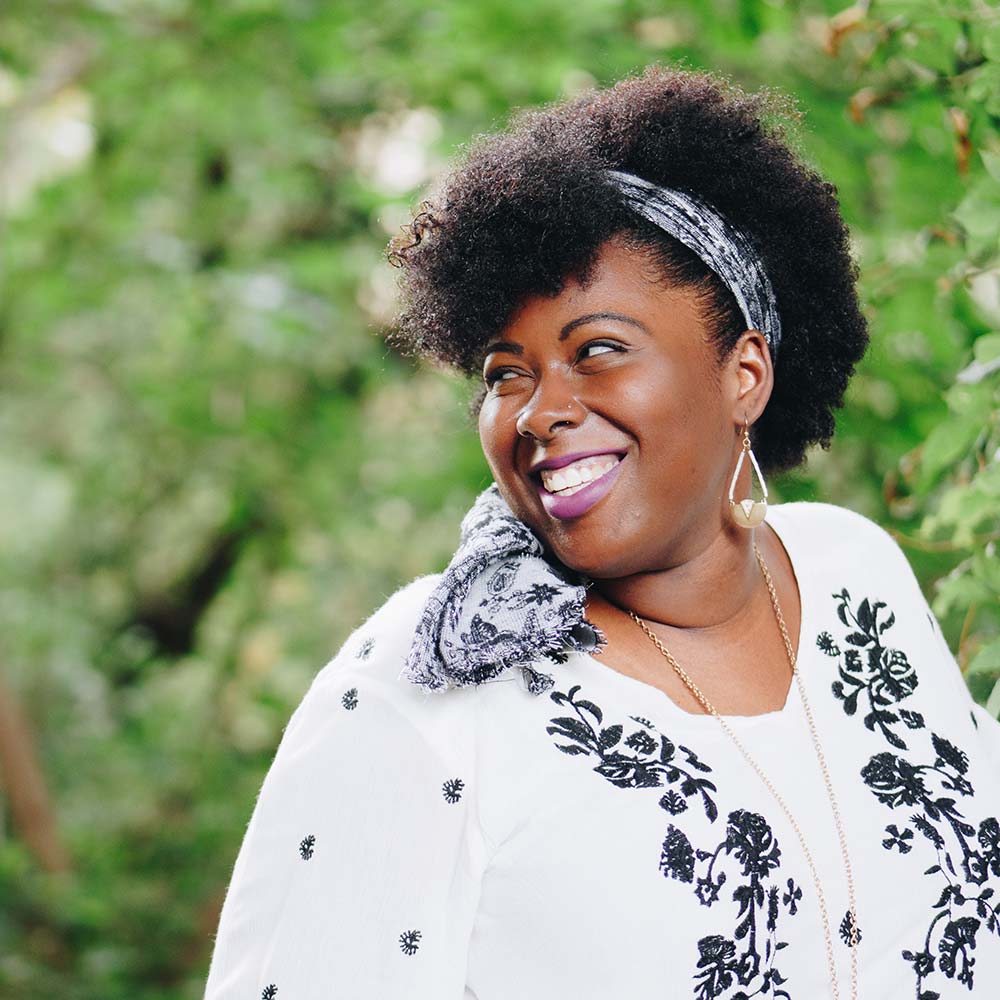Indigenous and Native Peoples Remain Resilient During Pandemic
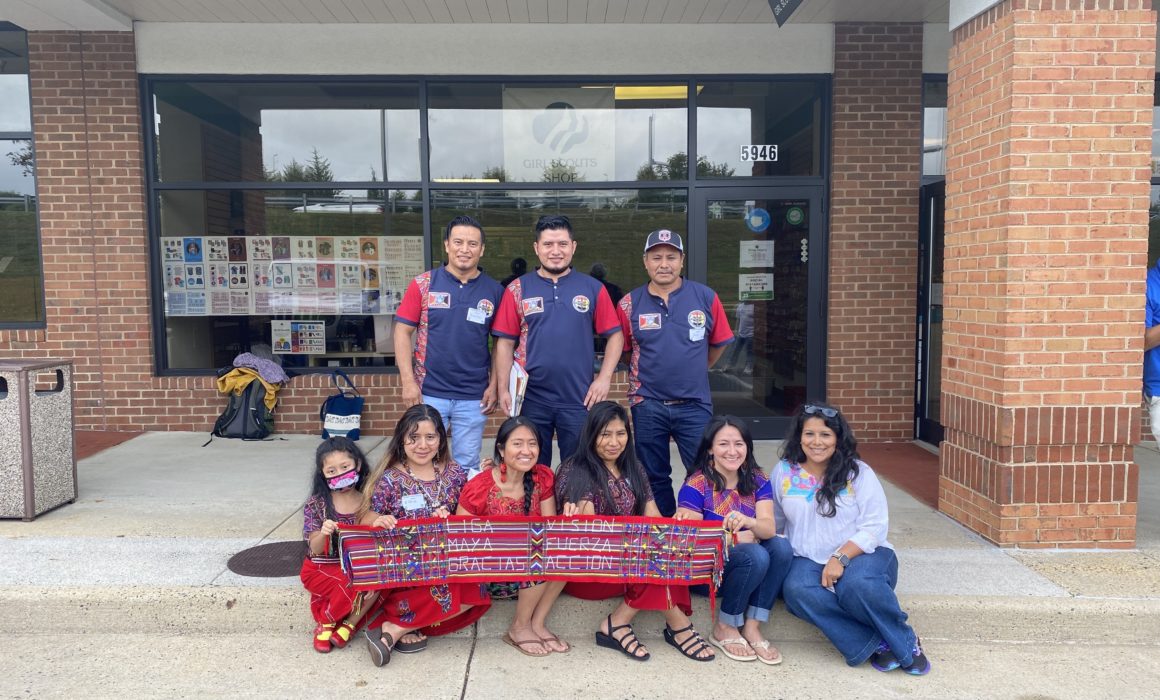
In the past several years many states and cities have moved to officially recognize October 11 as Indigenous People’s Day, instead of Columbus Day, to honor Native and Indigenous peoples and their histories and cultures. While recognizing Indigenous People’s Day is an important step in reconciling the centuries of harm brought upon Native and Indigenous peoples, their fight for recognition and representation spans well beyond one holiday.
As part of Indigenous People’s Day and National Native American Heritage Month (which begins November 1), we highlight the challenges Made to Save grantees like the International Mayan League and Yee Ha’ólníi Doo face, and the important contributions they have made in the fight for COVID-19 vaccine access in their communities.
One such group fighting for this visibility is the International Mayan League. The League was established in the 1990s, after the end of a decades-long civil war and genocide of the Maya people in Guatemala.
“So many people were forced out into exile…into Mexico…into the United States. And it was in that spirit that those in exile, who self-identified as Maya, decided that they wanted to come together and create something for the community, rooted in our identity and our knowledge, cosmovision, culture,” said Juanita Cabrera-Lopez (Maya Mam), Executive Director of the International Mayan League.
Over the past few decades, the organization has worked to not only highlight and denounce these human rights atrocities, but also bring awareness to the invisible indigenous diaspora of the Maya. Cabrera-Lopez said that it is this lack of visibility or knowledge of modern-day Maya peoples’ existence that hurts her community the most.
“The biggest barrier [for our community] was with the fact that we’d become erased—our identity had become erased, and our languages and our voice were becoming erased,” said Cabrera-Lopez.
Because of this situation, Cabrera-Lopez said that the COVID-19 pandemic was especially hard on her community. Much of the information and resources shared during the course of the pandemic were not accessible to Maya peoples.So Juanita and her team created vaccine information in some of the Maya languages.
Just as with many other communities of color, this lack of access, coupled with a painful history, has led to a lack of trust and overall hesitancy in the entities responsible for distributing the COVID-19 vaccines. In response, the League has enlisted the assistance of Maya Ixil health promoters (promotores), who are trained to talk about the vaccines, address misinformation, and accompany Maya indigenous community members to local vaccine clinics.
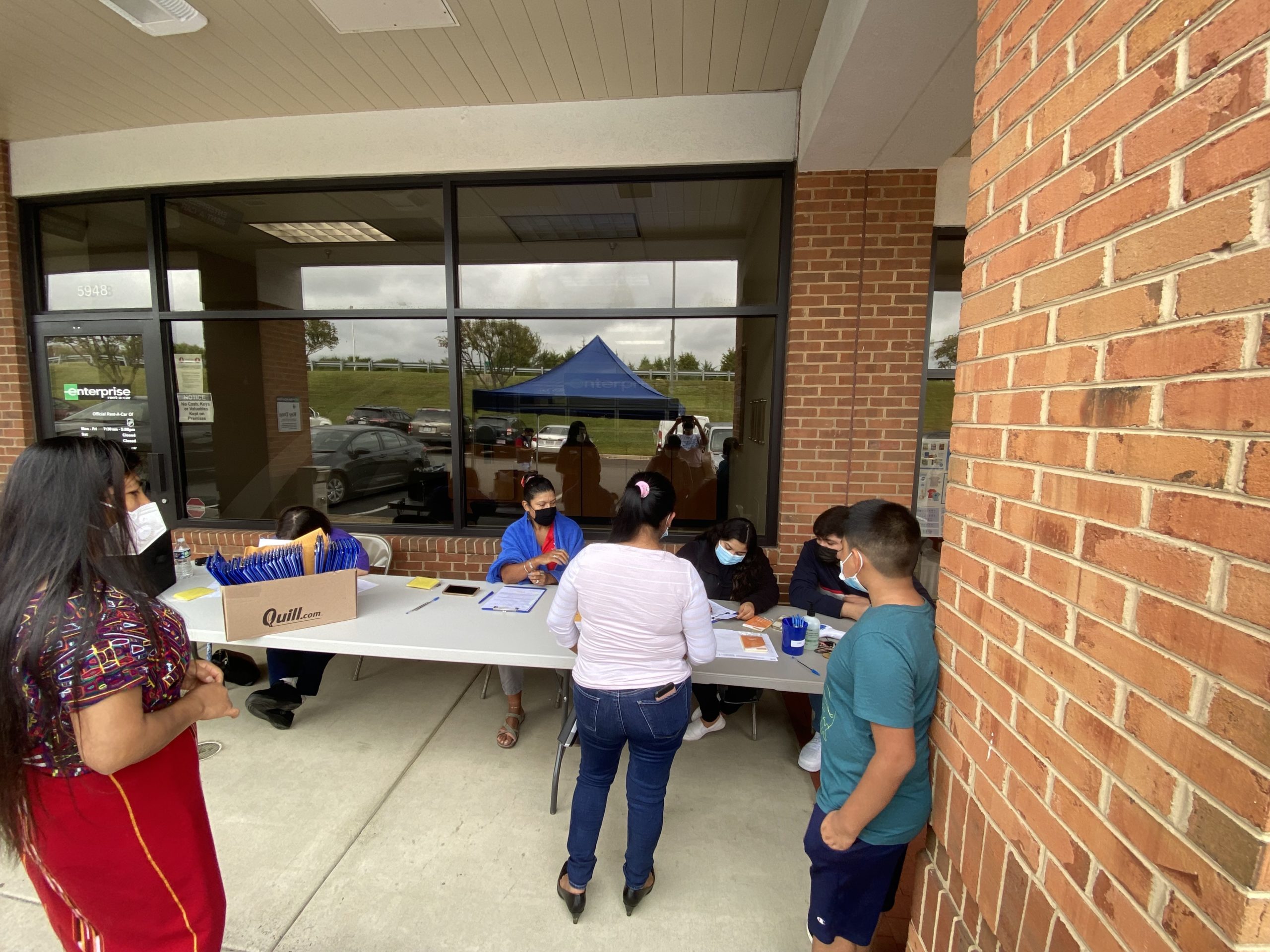
Their last vaccine clinic was held October 10 in partnership with the Centreville Labor Resource Center and HealthWorks NoVa. During this clinic, Maya Ixil health promoters greeted and directed local community members as they arrived to receive the vaccine. Beyond this, Mayan League representatives also promoted the clinic on their Facebook page (Facebook is where their community members most frequently get information).
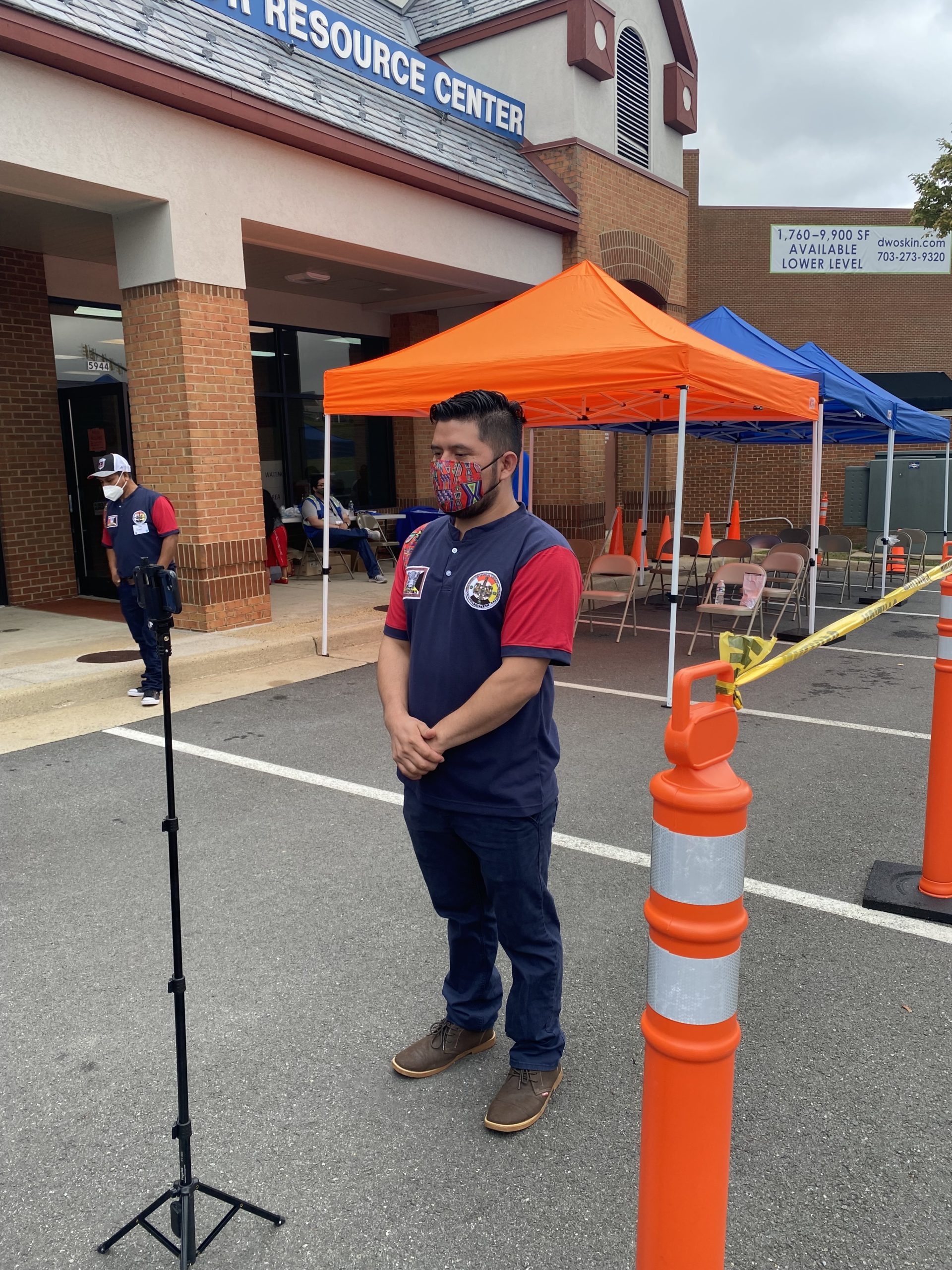
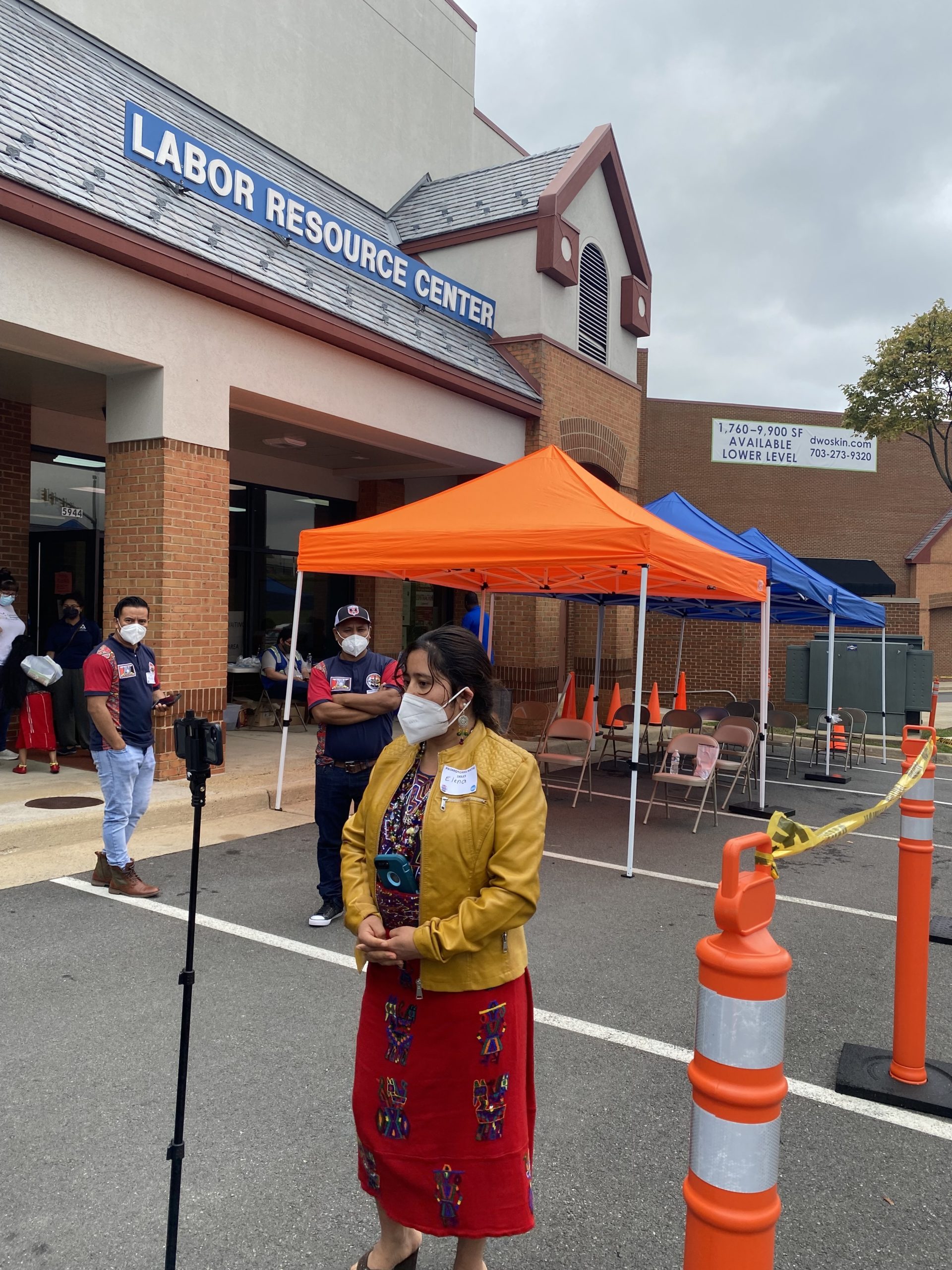
Maya League Health Promoters speak to their community, via Facebook Live, to promote the vaccine and their vaccine clinic.
The work of these health promoters and other trusted messengers getting their communities vaccinated cannot be understated.
“There’s a lot of fear in our community. A lot of members don’t want to get the vaccines, but then they see us and they hear us speaking in our languages and they see members of their own community and they become less fearful and they are encouraged,” said Isabela de Paz, Maya Ixil Promotora.
Meanwhile, across the country in Utah, Arizona and New Mexico, the Navajo Nation is engaged in similar COVID-19 community outreach. They have curbed their case rates and vaccinated more than half of their adult population. This progress can be attributed to community organizations like the Yee Ha’ólníi Doo DBA Navajo & Hopi Families COVID-19 Relief Fund, which was created in response to the devastating number of COVID-19 cases in Navajo Nation during the first months of the pandemic.
During a Facebook Live event on Indigenous People’s Day this year, Yee Ha’ólníi Doo Logistics Coordinator and Governmental Liaison, Theresa Hatathlie-Delmar, spoke about the social and economic inequities that her community faces (i.e. inadequate housing, healthcare, and education to name a few). The COVID-19 pandemic brought these issues to the forefront, notably that only 12 ventilators were available on Navajo land, paling in comparison to the number of ventilators available in nearby U.S. states.
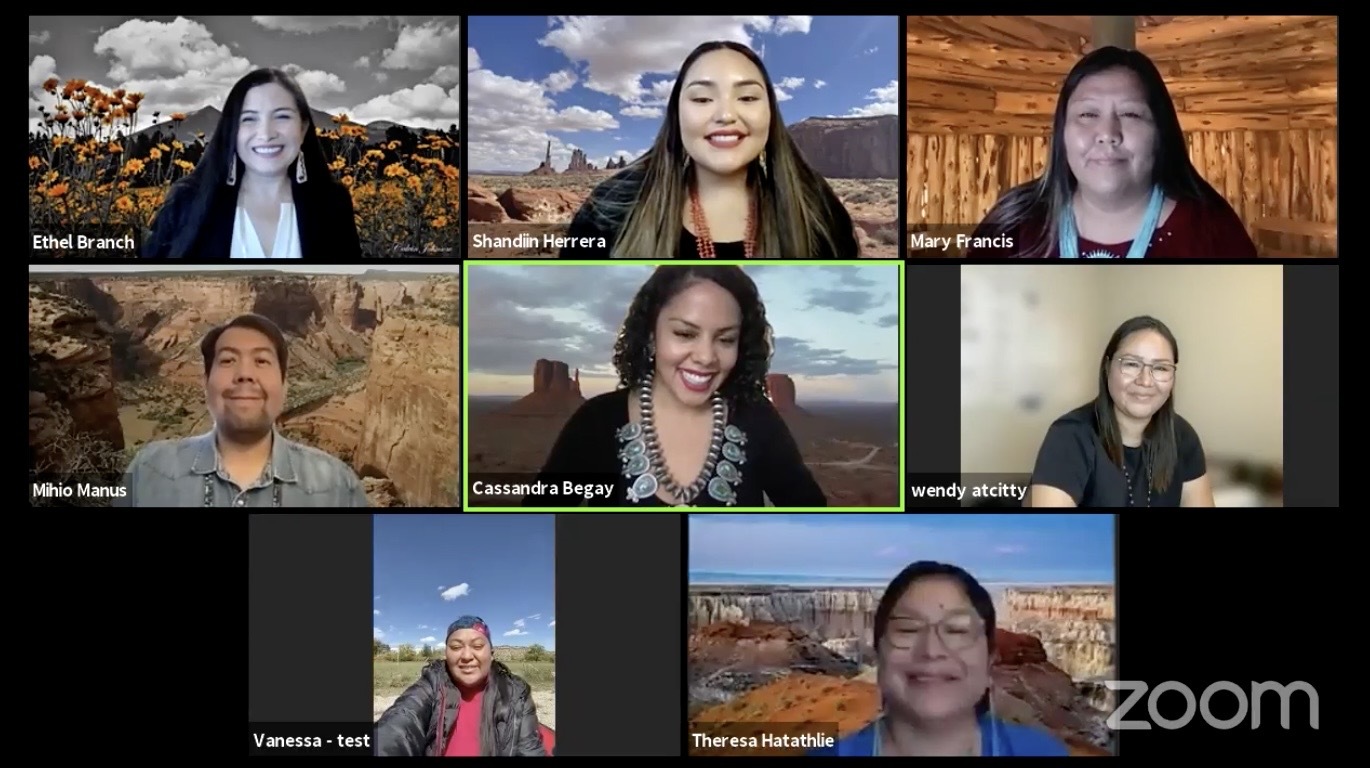
In closing this hour of reflection, Yee Ha’ólníi Doo interim Executive Director Ethel Branch uplifted the beautiful stories shared by other community members during the program, and reminded viewers to be proud of how far they [Native and Indigenous peoples] have come: the Navajo Nation and its people have not only survived years of colonization, but come out stronger.
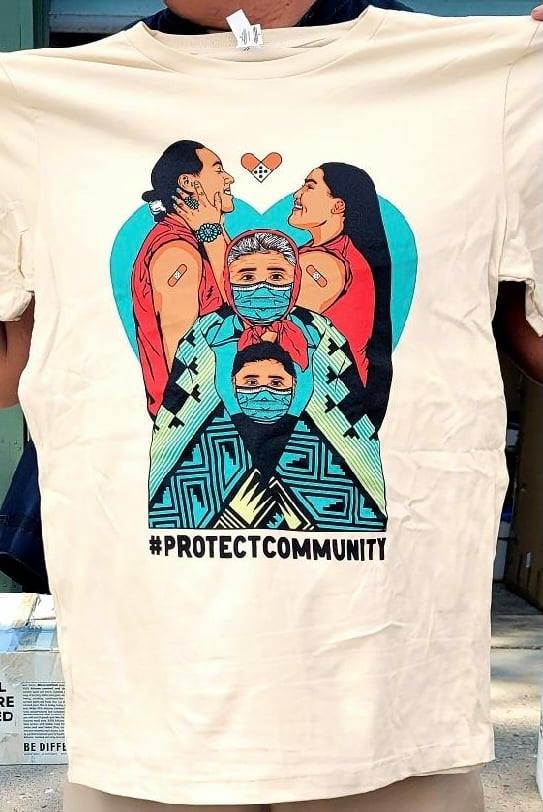
A Yee Ha’ólníi Doo volunteer shows off the new t-shirt created to encourage community members to get vaccinated.
It is in this same spirit that Juanita Cabrera-Lopez, of the International Mayan League, reflected on Indigenous People’s Day:
“Celebrating Indigenous People’s Day not only honors the fact that we’ve survived hundreds of years of genocide and colonization. But also recognizing flourishing peoples, cultures, and societies…and the contributions that we are making.”
As we prepare to celebrate Native American Heritage Month, both indigenous groups ask that a basic level of respect for their culture and acknowledgement of their existence be on the top of the broader population’s mind.
“We just hope that, as more people celebrate Indigenous People’s Day, that they also realize that we exist all year long,” said Cabrera-Lopez.
